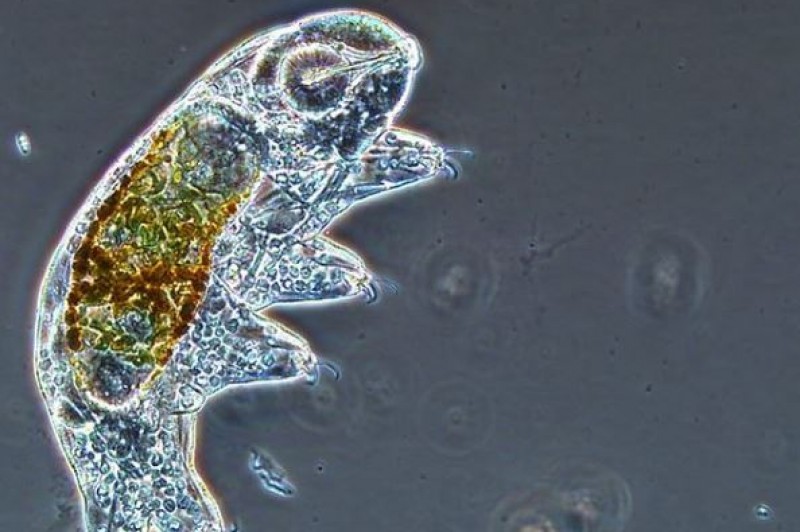A PhD student has amassed over 55,000 followers and millions of views on Instagram after sharing incredible images and videos of microscopic creatures magnified 40 to 1000 times.
 Image of a tardigrade on @microbialecology
Image of a tardigrade on @microbialecologyHunter N. Hines posts photos and footage of the organisms he studies during his PhD research under his microscope, including single-celled organisms like ciliates and micro-animals like worms and tardigrades (known as water bears).
He was also first author on a piece recently published in Nature, highlighting the importance of using social media in science outreach.
Hunter said: “The videos and photos on my Instagram show these awesome creatures in their natural state as they are behave and move, rather than just drawings from a textbook.”
Hunter is currently studying for his PhD at Bournemouth University, conducting research in Florida on single-celled organisms called ciliates, looking at their biodiversity and biogeography in freshwater ecosystems.
Alongside ciliates, his Instagram account @microbialecology shows microscopic creatures including worms, larvae and micro crustaceans doing everything from laying eggs to eating each other.
At one point the account received over 1.4 million views in a single week.
Hunter said: “These are organisms at the foundation of foodwebs and important for ecosystem health. I collect them from freshwater habitats, such as ponds, in Florida, and some are from soil.
“For many viewers this is the first time they are seeing these creatures from the micro world as living things.
“I hope that my posts can reach a global audience, and show microbiology in a positive light, while inspiring interest in science to anyone with internet access.”
For more, visit the @microbialecology Instagram account.



